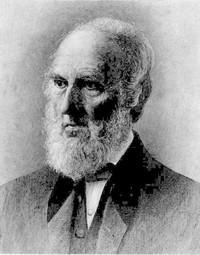Read this ebook for free! No credit card needed, absolutely nothing to pay.
Words: 14618 in 4 pages
This is an ebook sharing website. You can read the uploaded ebooks for free here. No credit cards needed, nothing to pay. If you want to own a digital copy of the ebook, or want to read offline with your favorite ebook-reader, then you can choose to buy and download the ebook.


: Reform and Politics Part 2 from The Works of John Greenleaf Whittier Volume VII by Whittier John Greenleaf - United States Politics and government
: UTOPIAN SCHEMES AND POLITICAL THEORISTS PECULIAR INSTITUTIONS OF MASSACHUSETTS LORD ASHLEY AND THE THIEVES WOMAN SUFFRAGE ITALIAN UNITY INDIAN CIVILIZATION READING FOR THE BLIND THE INDIAN QUESTION THE REPUBLICAN PARTY OUR DUMB RELATIONS INTERNATIONAL ARBITRATION SUFFRAGE FOR WOMEN
REFORM AND POLITICS
UTOPIAN SCHEMES AND POLITICAL THEORISTS.
THERE is a large class of men, not in Europe alone, but in this country also, whose constitutional conservatism inclines them to regard any organic change in the government of a state or the social condition of its people with suspicion and distrust. They admit, perhaps, the evils of the old state of things; but they hold them to be inevitable, the alloy necessarily mingled with all which pertains to fallible humanity. Themselves generally enjoying whatever of good belongs to the political or social system in which their lot is cast, they are disposed to look with philosophic indifference upon the evil which only afflicts their neighbors. They wonder why people are not contented with their allotments; they see no reason for change; they ask for quiet and peace in their day; being quite well satisfied with that social condition which an old poet has quaintly described:--
"The citizens like pounded pikes; The lesser feed the great; The rich for food seek stomachs, And the poor for stomachs meat."
The romance of Sir Thomas More, which has long afforded to the conservatives of church and state a term of contempt applicable to all reformatory schemes and innovations, is one of a series of fabulous writings, in which the authors, living in evil times and unable to actualize their plans for the well-being of society, have resorted to fiction as a safe means of conveying forbidden truths to the popular mind. Plato's "Timaeus," the first of the series, was written after the death of Socrates and the enslavement of the author's country. In this are described the institutions of the Island of Atlantis,--the writer's ideal of a perfect commonwealth. Xenophon, in his "Cyropaedia," has also depicted an imaginary political society by overlaying with fiction historical traditions. At a later period we have the "New Atlantis" of Lord Bacon, and that dream of the "City of the Sun" with which Campanella solaced himself in his long imprisonment.
The "Utopia" of More is perhaps the best of its class. It is the work of a profound thinker, the suggestive speculations and theories of one who could
"Forerun his age and race, and let His feet millenniums hence be set In midst of knowledge dreamed not yet."
Much of what he wrote as fiction is now fact, a part of the frame-work of European governments, and the political truths of his imaginary state are now practically recognized in our own democratic system. As might be expected, in view of the times in which the author wrote, and the exceedingly limited amount of materials which he found ready to his hands for the construction of his social and political edifice, there is a want of proportion and symmetry in the structure. Many of his theories are no doubt impracticable and unsound. But, as a whole, the work is an admirable one, striding in advance of the author's age, and prefiguring a government of religious toleration and political freedom. The following extract from it was doubtless regarded in his day as something worse than folly or the dream of a visionary enthusiast:--
"He judged it wrong to lay down anything rashly, and seemed to doubt whether these different forms of religion might not all come from God, who might inspire men in a different manner, and be pleased with the variety. He therefore thought it to be indecent and foolish for any man to threaten and terrify another, to make him believe what did not strike him as true."
Passing by the "Telemachus" of Fenelon, we come to the political romance of Harrington, written in the time of Cromwell. "Oceana" is the name by which the author represents England; and the republican plan of government which he describes with much minuteness is such as he would have recommended for adoption in case a free commonwealth had been established. It deals somewhat severely with Cromwell's usurpation; yet the author did not hesitate to dedicate it to that remarkable man, who, after carefully reading it, gave it back to his daughter, Lady Claypole, with the remark, full of characteristic bluntness, that "the gentleman need not think to cheat him of his power and authority; for what he had won with the sword he would never suffer himself to be scribbled out of."
Harrington, on the other hand, as became the friend of Milton and Marvel, held fast, through good and evil report, his republican faith. He published his work after the Restoration, and defended it boldly and ably from the numerous attacks made upon it. Regarded as too dangerous an enthusiast to be left at liberty, he was imprisoned at the instance of Lord Chancellor Hyde, first in the Tower, and afterwards on the Island of St. Nicholas, where disease and imprudent remedies brought on a partial derangement, from which he never recovered.
Free books android app tbrJar TBR JAR Read Free books online gutenberg
More posts by @FreeBooks

: The Works of John Greenleaf Whittier Volume VI. (Of VII) Old Portraits and Modern Sketches Plus Personal Sketches and Tributes and Historical Papers by Whittier John Greenleaf - Biography; History


: Historical Papers Part 3 from Volume VI of The Works of John Greenleaf Whittier by Whittier John Greenleaf - History






